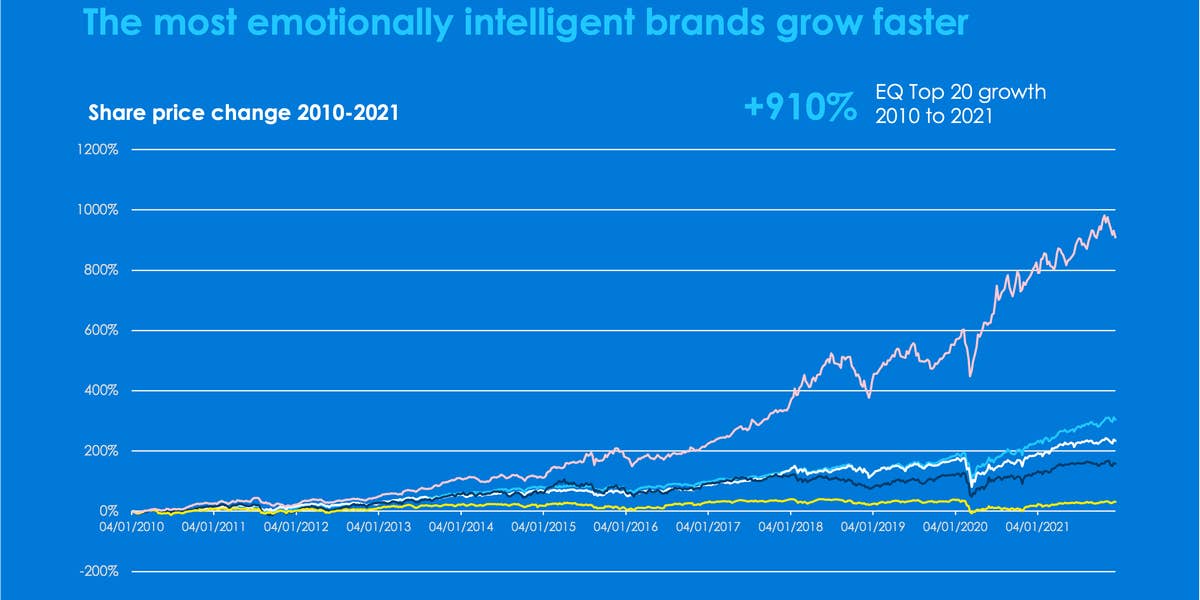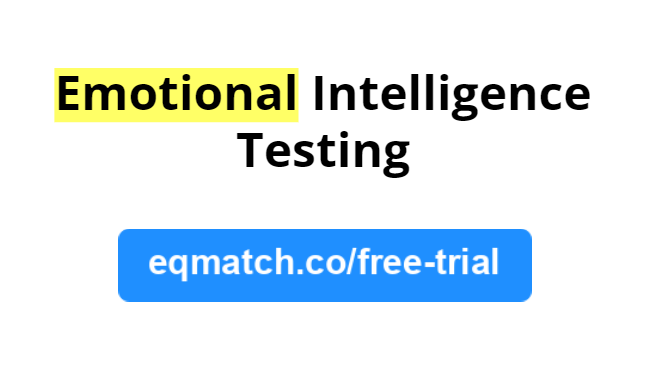People who can identify and manage their emotions, as well as the emotions of others are said to be emotionally intelligent.
Naturally, emotional intelligence becomes an essential skill in the workplace. It helps us communicate effectively, build strong relationships, and work collaboratively with others.
Why is emotional intelligence important for leaders? Leadership and emotional intelligence go hand in hand.
Leaders with high emotional intelligence are often more effective in their roles. Successful leadership requires us to be good in understanding and responding to the needs and emotions of our team members.
It is no surprise that emotional intelligence is becoming a crucial part of human resources management. Check out our HR statistics 2023 guide to see what’s trending in the HR domain.
Testing your emotional intelligence
This is where Emotional intelligence tests come into the scene. These tests measure one’s level of emotional intelligence and help us understand our strengths and weaknesses.
Emotional intelligence tests can help us identify strategies for managing our emotions more effectively. In this post, we will discuss the best emotional intelligence tests available for leaders and employees.
Emotional intelligence tests can provide valuable insights and guidance to leaders looking to improve team management. These assessments are equally valuable to employees seeking to enhance their communication skills and build stronger relationships.
Emotional intelligence can help unlock our full potential and achieve greater success in all areas of our lives.
Understanding Emotional Intelligence
What does it mean to have emotional intelligence?
Let’s dive into the 4 components of Emotional intelligence (EI): self-awareness, self-management, social awareness, and relationship management.

Emotional intelligence 4 components
Self-awareness
This is the ability to recognize one’s own emotions and their impact on oneself and others.
Put another way, it is the ability to see ourselves clearly and objectively through reflection and introspection.
What does it mean to have a high level of self-awareness?
For starters, such individuals are better able to manage their emotions.
They are also less likely to react impulsively.
Such individuals are more open to feedback and are able to make changes based on that feedback.
Self-management
This involves regulating one’s own emotions and behavior.
Those with high self-management skills are able to adapt to changing situations, control their impulses, and maintain a positive attitude even in difficult situations.
They are also able to set goals and work towards them in a focused and determined manner.
Social awareness
This is the ability to understand and empathize with the emotions of others.
People with high social awareness are able to read social cues and understand the needs of others.
They are also able to adapt their communication style to effectively connect with others.
Relationship management
This is about building and maintaining positive relationships with others.
People with high relationship management skills are able to communicate effectively, resolve conflicts, and build trust with others.
They are also able to inspire and motivate others toward a common goal.
Hope, by now, you have a better understanding of the elements of emotional intelligence.
Importance of emotional intelligence in the workplace
Emotional intelligence is critical to success in the workplace.
EQ impacts leadership effectiveness, teamwork, and productivity.
Leaders with high EQ are better able to understand and respond to the needs and emotions of their team members.
This allows them to build strong relationships, inspire and motivate their team, and ultimately achieve better results.
Teamwork
Emotional intelligence is important for teamwork.
It helps people communicate effectively, build trust, and work collaboratively towards shared goals.
In a highly competitive and constantly evolving business environment, the ability to work effectively in teams is essential for success.
Productivity
Emotional intelligence also plays a key role in productivity.
People with high EQ manage their emotions effectively and remain focused on their work.
This leads to better decision-making, higher quality work, and ultimately, greater success.

Emotional Intelligence in Organizations
Businesses prioritizing emotional intelligence see significant success in terms of both employee satisfaction and overall business performance.
Google has long been known for its focus on emotional intelligence. They even offer courses on emotional intelligence to their employees.
This has helped the organization create a positive and supportive work environment, leading to higher levels of employee satisfaction and better overall performance.
A report by Carat suggests that Google has the world’s highest Emotional Intelligence score.

Source: Dentsu
Another example is Microsoft, which has made emotional intelligence a key part of its leadership training programs.
Microsoft’s emphasis on emotional intelligence has helped to create a culture of trust, respect, and collaboration, leading to higher levels of employee engagement and better overall performance.
Emotional intelligence is a critical skill for success in the workplace.
One can achieve greater success in their personal and professional life by developing strong self-awareness, self-management, social awareness, and relationship management skills.
Carat’s research demonstrates a stronger correlation between high EQ and high growth.

Source: Dentsu
Organizations that prioritize emotional intelligence see significant benefits in terms of employee satisfaction, teamwork, and overall business performance.
Types of Emotional Intelligence Tests
Emotional intelligence tests measure an individual’s ability to perceive, understand, and manage their emotions effectively, as well as the emotions of others.
There are several different types of corporate personality testing solutions.
Each comes with its own advantages and limitations.
Self-Assessment Questionnaires
These tests require the test-taker to rate themselves on a series of statements related to emotional intelligence, such as “I am aware of my own emotions” or “I am able to handle stressful situations.”
Pros:
- They are quick and easy to administer.
- They are less expensive than other types of tests.
- They allow individuals to gain insight into their own emotional intelligence and identify areas for improvement.
Cons:
- They rely on self-reporting, which can be biased.
- Individuals may not accurately understand or assess their own emotional intelligence.
- They may not be as reliable or valid as other types of tests.
Ability Tests
Ability tests are designed to measure an individual’s actual ability to perceive, understand, and manage emotions.
These tests typically involve completing tasks or answering questions that require emotional intelligence skills, such as recognizing facial expressions or identifying the emotional states of others.
Pros:
- They provide a more objective assessment of emotional intelligence than self-assessment questionnaires.
- They can identify specific areas of strength and weakness in emotional intelligence skills.
- They can be used to predict job performance and success.
Cons:
- They can be time-consuming and expensive to administer.
- They may not be practical for large groups of individuals.
- They may not be suitable for all types of jobs or situations.
Situational judgment tests
These measure an individual’s ability to apply emotional intelligence skills to real-world situations. These tests present individuals with scenarios or situations and ask them to choose the most appropriate emotional response or action.
Pros:
- They provide a more realistic assessment of emotional intelligence than other types of tests.
- They can identify how individuals apply emotional intelligence skills in specific situations.
- They can be used to predict job performance and success.
Cons:
- They can be time-consuming and expensive to administer.
- They may not be practical for large groups of individuals.
- The scenarios presented in the test may not accurately reflect all situations that individuals may encounter in real life.
Scoring and Interpretation
How are emotional intelligence tests scored? Self-assessment questionnaires are typically scored by adding up the individual’s responses and comparing them to a predetermined scale.
Ability tests and situational judgment tests are typically scored based on the number of correct responses or the quality of responses. Given the diverse range of factors impacting one’s eq, interpreting emotional intelligence test scores can be challenging.
Therefore, HR leaders should consider the context in which the test was administered, as well as the individual’s background, experiences, and personality.
One should interpret the test scores in conjunction with other sources of information, such as job performance evaluations, to gain a more comprehensive understanding of an individual’s emotional intelligence.

Best emotional intelligence Tests
Now that we have a good understanding of emotional intelligence and the different types of tests available, let’s dive into the best emotional intelligence tests currently available. Here are some of the top tests for emotional intelligence for leaders and employees:
The Emotional and Social Competence Inventory (ESCI)
The ESCI is a 360-degree assessment tool that evaluates an individual’s emotional and social intelligence skills.
It measures 12 competencies related to emotional intelligence, including self-awareness, empathy, adaptability, and teamwork.
This test is ideal for companies looking to assess their employees’ emotional intelligence skills and provide targeted training for improvement. The ESCI is available through certified providers and pricing varies depending on the provider.
The Mayer-Salovey-Caruso Emotional Intelligence Test (MSCEIT)
The MSCEIT is an ability-based test that measures an individual’s capacity to understand and manage emotions.
This test focuses on four branches of emotional intelligence: perceiving, using, understanding, and managing emotions.
The MSCEIT is widely recognized as a valid and reliable measure of emotional intelligence and is available through Pearson Assessment.
The Genos Emotional Intelligence Inventory (Genos EI)
The Genos EI is a self-assessment tool that measures an individual’s emotional intelligence in the workplace.
It assesses seven key competencies related to emotional intelligence, including empathy, self-awareness, and emotional self-control.
The Genos EI provides a detailed report on an individual’s strengths and areas for improvement, making it an effective tool for personal and professional development.
Pricing for the Genos EI varies depending on the provider.
The Six Seconds Emotional Intelligence Assessment (SEI)
The SEI is a self-assessment tool that measures an individual’s emotional intelligence using a combination of self-report and feedback from others.
This test measures eight competencies related to emotional intelligence, including emotional literacy, empathy, and collaboration. The SEI is available through certified providers and pricing varies depending on the provider.
The TalentSmart Emotional Intelligence Test
The TalentSmart Emotional Intelligence Test is a self-assessment tool that measures an individual’s emotional intelligence in the workplace. It assesses four key components of emotional intelligence: self-awareness, self-management, social awareness, and relationship management.
This test provides detailed feedback on an individual’s strengths and areas for improvement and is available through TalentSmart.
EQMatch emotional intelligence test for employees
Next on our list is EQMatch emotional intelligence testing.
EQMatch is a free emotional intelligence test that helps one assess their EQ levels. This assessment can be deployed during hiring as well as for existing employees. One of the biggest advantages of EQMatch is that it is an objective test.
Hence, the results are more accurate than most of the subjective emotional intelligence assessments out there.
Which is the best emotional intelligence test?
Each of these tests has its own unique features and benefits. The ESCI and Genos EI are both 360-degree assessments that provide a comprehensive view of an individual’s emotional intelligence skills.
The MSCEIT and SEI are both self-assessment tools that measure an individual’s capacity to understand and manage emotions. The TalentSmart Emotional Intelligence Test is a cost-effective option that assesses an individual’s emotional intelligence across all four components.
When comparing these tests, it’s important to consider factors such as cost, validity, reliability, and ease of use.
For example, the MSCEIT is widely recognized as a valid and reliable measure of emotional intelligence. However, it is comparatively more expensive and time-consuming.
On the other hand, the TalentSmart Emotional Intelligence Test is a cost-effective option that can be completed quickly and easily online. But it may not provide as comprehensive a view of an individual’s emotional intelligence skills as other tests.
Ultimately, the best emotional intelligence test for your company will depend on your specific goals and needs. By considering the features and benefits of each test and comparing them to your company’s priorities, you can make an informed decision and choose the emotional intelligence test that will be most effective for your organization.
Additionally, situational judgment tests (SJTs) assess an individual’s ability to identify appropriate responses to real-life scenarios. These tests often require individuals to evaluate different courses of action and choose the most appropriate response based on emotional intelligence principles.
While emotional intelligence tests can provide valuable insights, they are not perfect indicators of a person’s emotional intelligence.
Factors such as test anxiety and cultural differences can affect an individual’s test performance. Therefore, it is essential to use emotional intelligence tests in conjunction with other forms of assessment and evaluation, such as interviews and 360-degree feedback.
Scoring and interpretation of emotional intelligence tests also vary depending on the specific test. Some tests provide a numerical score that indicates an individual’s level of emotional intelligence. Others provide a report that outlines an individual’s strengths and weaknesses in specific emotional intelligence competencies.
Regardless of the type of emotional intelligence test, it is important to interpret the results with caution and seek the guidance of a trained professional who can provide further insights and recommendations based on the test results.
Benefits of emotional intelligence training
Training and development activities can help individuals improve their emotional intelligence skills.
Emotional intelligence training can help us become more self-aware, manage our emotions more effectively, develop better relationships with others, and communicate more clearly.

Emotional intelligence training programs and workshops
Emotional intelligence training and development programs often include workshops and coaching sessions.
One can also attend seminars on emotional intelligence. Most of these programs are customizable.
That is, they can be tailored to meet the specific needs of an organization and its employees. Thanks to technology, several training programs and workshops are available online.
Alternatively, you can opt for in-person workshops.
Activities and exercises to develop emotional intelligence in the workplace
The best emotional intelligence training programs incorporate a variety of activities and exercises that engage participants and help them develop their emotional intelligence skills. Let’s discuss some of these activities and exercises.
Mindfulness meditation
When we focus our attention on the present moment and observe thoughts and feelings without judgment, we become more self-aware.
We are also better able to manage our emotions.
Role-playing
Role-playing activities can help people practice their communication and relationship management skills in a safe and controlled environment.
Participants can take turns playing different roles in different scenarios to develop a deeper understanding of how to communicate and relate to others effectively.
Feedback sessions
Feedback sessions can provide individuals with valuable insights into their emotional intelligence skills. Participants can receive feedback from their peers, managers, or coaches on their strengths and areas for improvement.
Group discussions
Group discussions can help individuals learn from each other and develop their social awareness skills. Participants can share their experiences, perspectives, and ideas, and learn from the experiences of others.
Self-reflection exercises
These exercises can help us become more self-aware and develop our self-management skills.
Through these exercises, we can reflect on our thoughts, feelings, and behaviors and identify patterns and triggers that may be affecting our emotional responses.
Emotional intelligence training programs and workshops
Emotional intelligence training and development activities can help individuals improve their emotional intelligence skills and become more effective leaders and team members. The best training programs incorporate a variety of activities and exercises that engage participants and help them develop their emotional intelligence skills.
Conclusion
Emotional intelligence is a vital aspect of leadership and teamwork in the workplace.
Through emotional intelligence development, we can enhance communication, collaboration, and productivity in the workplace.
Emotional intelligence tests can help us identify areas for improvement and develop strategies to manage our emotions more effectively.
Emotional intelligence tests, training programs, and workshops can provide valuable insights and guidance on how to improve emotional intelligence and become more effective leaders and team members.
Emotional intelligence is a key component of success in the workplace.
Therefore, it is important for leaders and employees to prioritize EQ development. By utilizing emotional intelligence tests and training programs, we can enhance our emotional intelligence and unlock our full potential in the workplace.
FAQ
Here are the frequently asked questions related to EQ and the best emotional intelligence tests.
What is the definition of emotional intelligence and why is it important?
Emotional intelligence encompasses recognizing, understanding, and managing one’s own emotions and the emotions of others. EQ helps improve leadership effectiveness, teamwork, and productivity in the workplace.
What are the benefits of emotional intelligence training?
Emotional intelligence training can help improve self-awareness, empathy, communication, and conflict-resolution skills. It can also benefit companies by improving employee engagement, retention, and job performance.
What is the most popular emotional intelligence test?
The best emotional intelligence tests include self-assessment questionnaires, ability tests, and situational judgment tests. ESCI, MSCEIT, Genos EI, SEI, Talentsmart, and EQMatch are some of the most popular ones.
How can I improve my emotional intelligence?
Activities such as mindfulness meditation, journaling, and role-playing exercises can help with EQ development. It is important to practice emotional intelligence skills regularly to see long-term benefits.
How can emotional intelligence training benefit my company?
Emotional intelligence training can benefit companies by improving employee engagement, retention, and performance. It can also lead to a more positive work culture and better relationships between employees and managers.
How do I interpret the results of emotional intelligence tests?
Emotional intelligence tests are scored and interpreted based on a set of criteria, such as self-awareness, self-management, social awareness, and relationship management. It is important to understand the criteria and how they are weighted in order to interpret the results accurately.
What are the differences between emotional intelligence and cognitive intelligence?
Emotional intelligence and cognitive intelligence are different, EQ focuses on the ability to manage emotions and social interactions, while cognitive intelligence focuses on problem-solving and analytical abilities.
Are there any free emotional intelligence tests available?
Yes, there are free emotional intelligence tests available online. But it is important to choose a reputable test that has been validated by professionals in the field.
Where can I find emotional intelligence training programs and workshops?
Emotional intelligence training programs and workshops can be found through online resources, professional organizations, and training providers. It is important to choose a program that meets your needs and is led by qualified trainers.
What are the attributes of emotional intelligence that are most important for leaders?
The attributes of emotional intelligence that are most important for leaders include self-awareness, empathy, communication skills, conflict resolution skills, and the ability to build and maintain relationships. Developing these skills can improve leadership effectiveness and overall job performance.
Is emotional intelligence tested by IQ tests?
No. IQ tests measure one’s ability to solve problems, use logic, and communicate complex ideas.



No responses yet